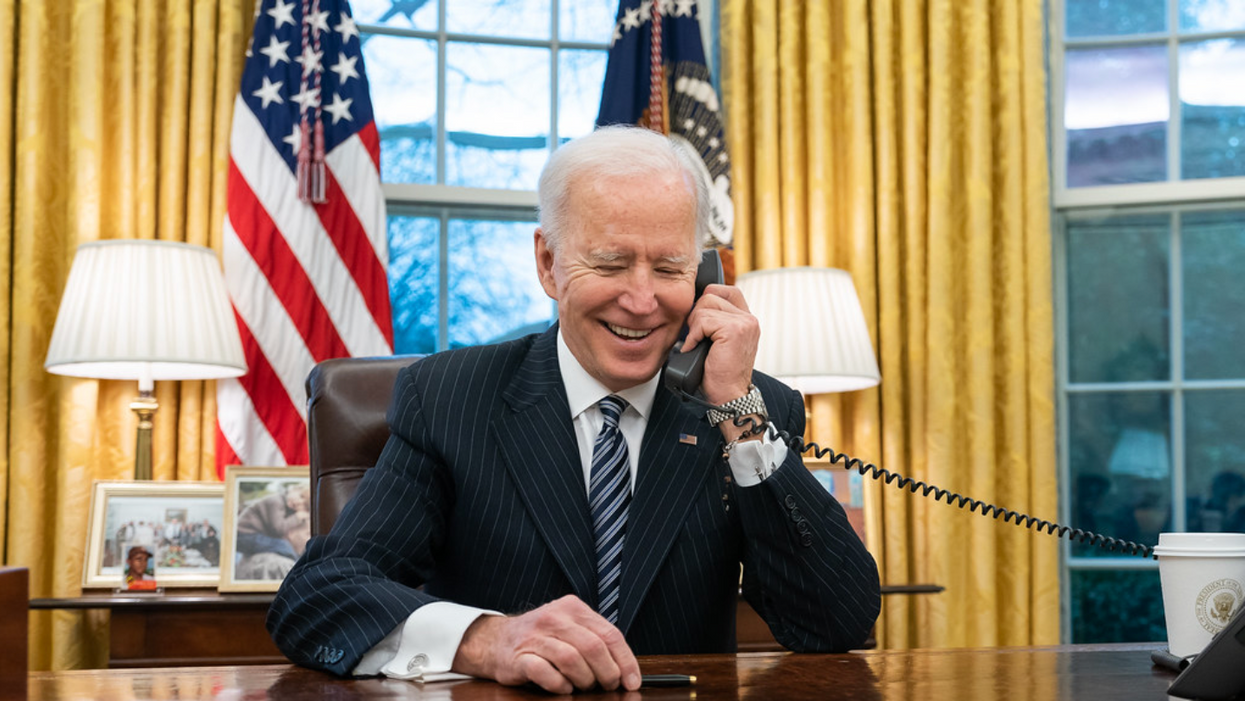Stocks Gain Despite GOP’s Dire Warnings About Biden
Reprinted with permission from Alternet
In addition to proposing an increase of the United States' corporate tax rate from 21 percent to 28 percent, President Joe Biden began a push this week for a major hike in the capital gains tax. Republican Sen. Shelley Moore Caputo of West Virginia and others on the right, not surprisingly, slammed the proposal and predicted the worst, and some on the right felt vindicated when the stock market dipped sharply after Biden's announcement.
But liberal economist and New York Times columnist Paul Krugman noted there was little warrant for their dire predictions on Twitter Friday morning.
Caputo, during a Friday morning appearance on CNBC's Squawk Box complained, "Is there not a tax that's not going to be raised just in enormous amounts to fulfill the Green New Deal and other promises that were made during (Biden's 2020) campaign? I mean, I don't see why the thirst for raising taxes is so incredibly large when we see the impact that's going to have on our economy, on our job creation and all that…. I can't support that."
The Wall Street Journal's conservative editorial board had an equally negative reaction to Biden's proposed capital gains tax hike, writing, "The lesson that investors should have learned by now is that Bernie Sanders was right when he predicted that Joe Biden would be the most left-wing president since FDR. Moderate Joe was always a mirage."
On Thursday, Laura Davison and Allyson Versprille of Bloomberg News reported that according to sources, Biden proposes "almost doubling the capital gains tax rate for wealthy individuals to 39.6 percent" or as high as 43.4 percent from "the current base rate of 20%." The S&P 500 took a slight dip on Thursday, but the following day, Krugman assured Twitter users that Biden was not causing the sky to fall.
Posting an S&P 500 chart showing a 52-week period, Krugman tweeted:
Krugman, in his Twitter thread, added that he "was struck by how small the reaction to the tax announcement was — less than 1 percent on the day":
White House Press Secretary Jen Psaki weighed in on fluctuations in the stock market when a reporter, at a press briefing on Friday, mentioned Biden's proposal for higher capital gains taxes. Psaki told the reporter, "I've been doing this long enough not to comment on movements in the stock market, but I did see just data, factually, that it went back up this morning."
Bloomberg News' John Authers, in an article published on Friday, explains, "Stock markets don't like it when politicians say they are going to raise capital gains taxes. This should come as no surprise to anyone, and so, Wall Street's response to Thursday's Bloomberg News exclusive that President Biden is planning a big hike in CGT was predictable."
Authers goes on remember how capital gains taxes can affect the stock market, writing, 'What are the direct effects of a CGT hike? If you were thinking of selling shares anyway, it makes far more sense to sell them before the end of the year…. It's not clear that higher CGT does anything more than bring sales forward. The way the market handled the last major CGT increase, at the end of 2012, is instructive."
Recalling how the stock market behaved in 2012 and 2013 — when Barack Obama was president and Biden was vice president — Authers notes, "As it grew clear that higher capital gains taxes were coming, the S&P 500 languished and went sideways for the last few months of the year, closing roughly where it had been in March. Then, 2013 turned out to be a great year; stocks started their rally at the beginning of January and never really stopped."









